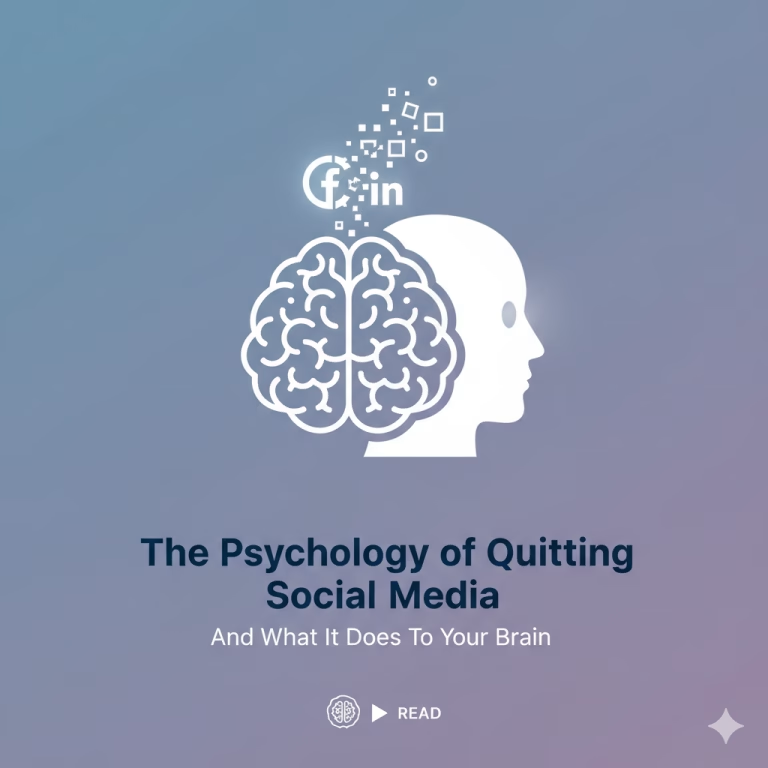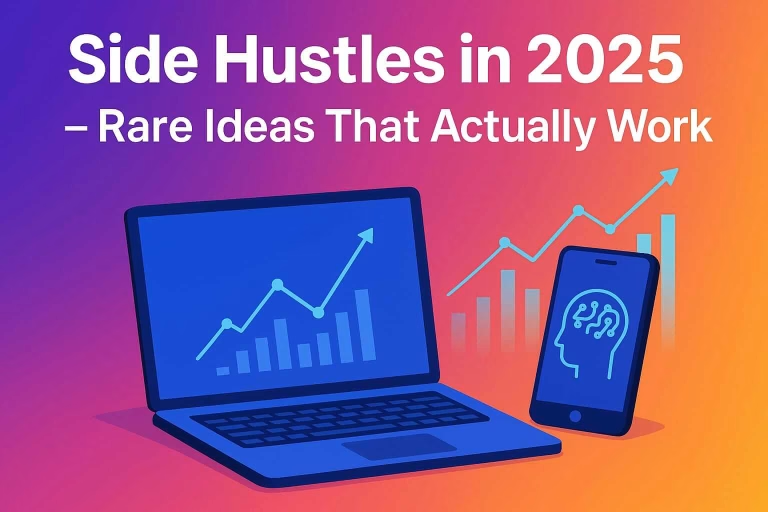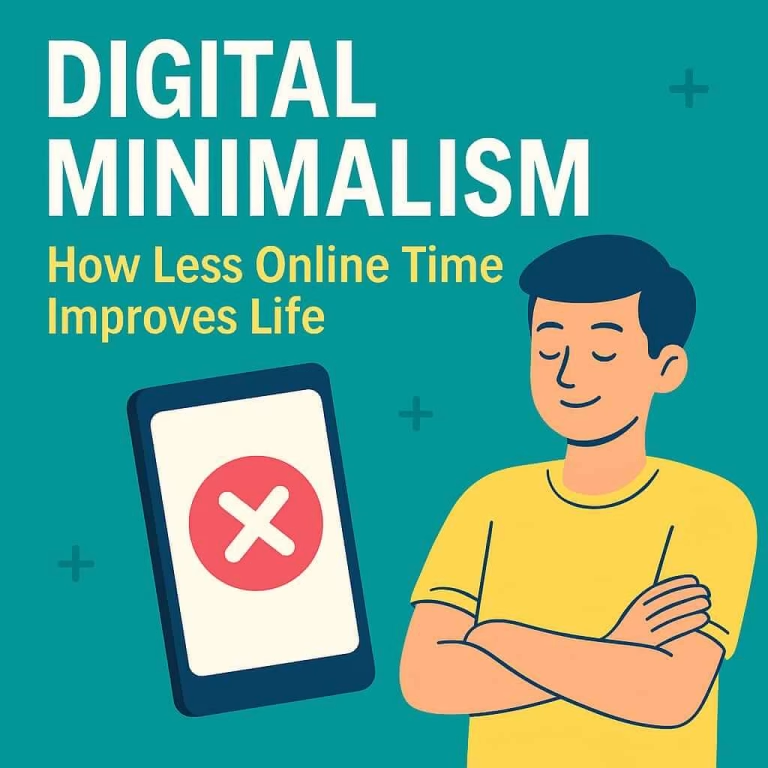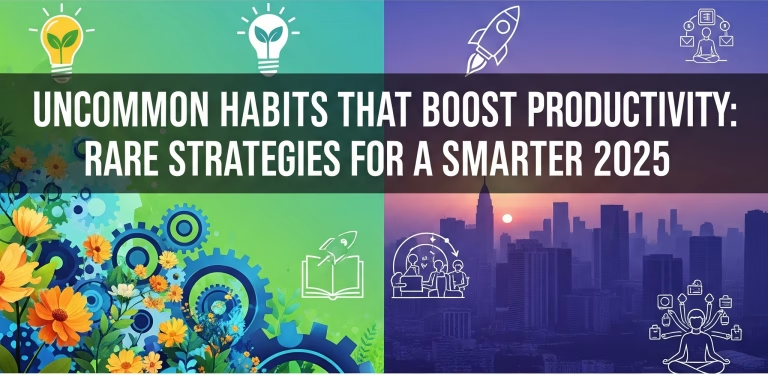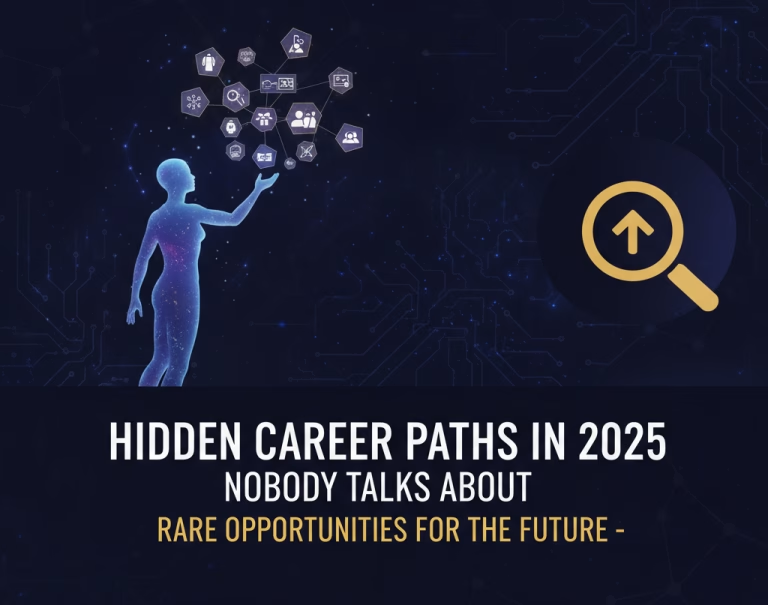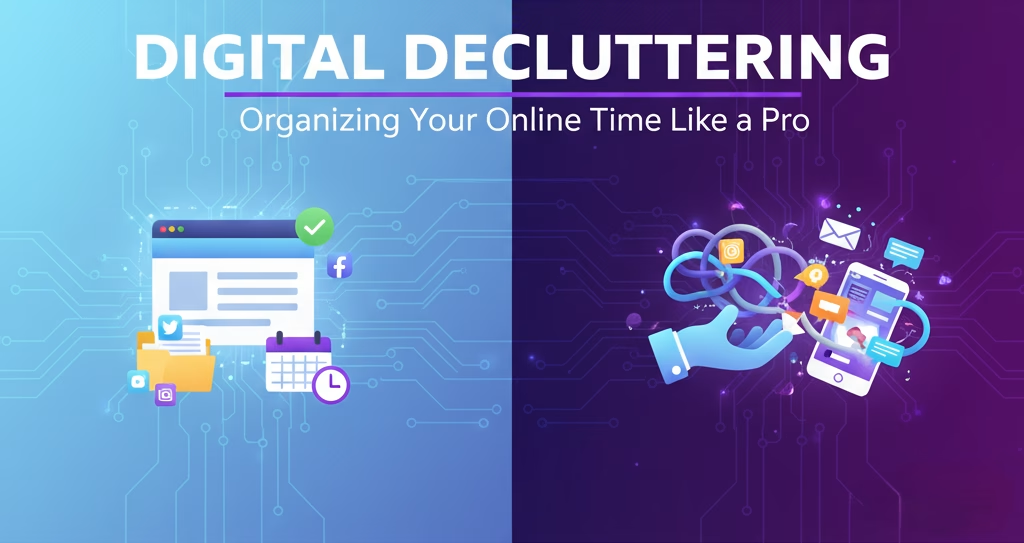
Introduction
In an age where our lives are dominated by screens, apps, and endless notifications, staying organized online has become a real challenge. The constant flood of emails, social media updates, and digital files creates hidden stress that slowly drains productivity. That’s why Digital Decluttering: Organizing Your Online Time Like a Pro is no longer a luxury—it’s a survival skill.
Digital clutter is just like a messy room. The more crowded it becomes, the harder it gets to find peace, focus, and balance. Whether you’re a student trying to study, a professional chasing deadlines, or a creative mind searching for clarity, your digital environment plays a bigger role in your success than you realize. Decluttering not only frees up storage—it frees up your mental energy.
The question is simple: how do you take control of your online life instead of letting it control you? The answer lies in adopting digital decluttering routines that transform chaos into clarity.
What is Digital Decluttering and Why It Matters
At its core, digital decluttering means removing unnecessary digital noise from your life—emails you never read, apps you don’t use, files you no longer need, and social platforms that waste your energy. But it’s not only about deleting things; it’s about creating an intentional system where every click, every file, and every notification serves a purpose.
Here’s why it matters more than ever in 2025:
- Mental Clarity: A cluttered digital space mirrors a cluttered mind. Decluttering helps reduce stress and anxiety.
- Productivity Boost: When your files, apps, and tasks are streamlined, you save hours every week.
- Better Focus: Without constant digital distractions, your brain can enter deep work mode faster.
- Emotional Balance: Decluttering reduces the invisible pressure of “always being online.”
- Digital Wellness: Just like physical exercise, digital cleanliness strengthens long-term mental health.
In short, digital decluttering is not just about organizing your devices—it’s about reclaiming your time, focus, and freedom. And when you learn how to do it like a pro, your online life shifts from overwhelming chaos to empowering control.
Signs You Need Digital Decluttering in Your Online Life
Sometimes, people don’t realize how much digital clutter is secretly controlling their daily routines. Just like a messy desk makes it hard to work efficiently, a cluttered digital life silently eats away your focus, productivity, and even your happiness. If you’re not sure whether you need to declutter your online world, here are the major signs to watch out for:
1. Your Notifications Never Stop Buzzing
If your phone or laptop is constantly lighting up with notifications—emails, social media alerts, app reminders—it’s a big warning sign. Instead of helping you stay updated, these interruptions are stealing your attention. Research shows that it takes an average of 23 minutes to refocus after a single distraction. Imagine how much time gets wasted when you deal with dozens of pings every day.
Digital decluttering allows you to silence irrelevant alerts and prioritize what truly matters. By taking control of notifications, you reclaim hours of productive time.
2. Your Inbox Feels Like a Black Hole
An overflowing email inbox is another red flag. If you have thousands of unread emails sitting untouched, it’s not just a digital mess—it’s a mental burden. Every time you open your inbox, you feel overwhelmed instead of in control.
Decluttering here doesn’t only mean deleting old emails. It’s about setting filters, unsubscribing from unnecessary newsletters, and creating folders that keep your communication clear and purposeful.
3. You Waste Time Searching for Files
Can’t find the document you worked on last week? Or maybe your desktop is flooded with random screenshots and duplicate files? That’s digital clutter at work.
Wasting 10–15 minutes every time you search for something might seem small, but add it up and you’re losing dozens of hours every month. Digital decluttering organizes your files so every document is exactly where it should be.
4. Your Social Media Feeds Drain Your Energy
Scrolling endlessly through Instagram, Facebook, or TikTok might seem harmless, but it often leaves you drained and dissatisfied. If you spend hours online yet feel unproductive and mentally tired, you’re caught in a clutter trap.
Decluttering your social platforms means unfollowing accounts that don’t add value, limiting your screen time, and consciously engaging with only meaningful content.
5. You Keep Installing Apps You Rarely Use
Most people have dozens of apps on their phones, but regularly use only a handful. These unused apps take up storage, slow down your device, and clutter your digital space.
If your phone looks like an app jungle, it’s time to declutter. Removing unnecessary apps creates breathing room for both your device and your mind.
6. You Feel “Always Online” but Rarely Productive
Do you often check emails, social media, or messaging apps only to realize hours have passed without achieving anything important? That’s a classic sign that digital clutter is controlling your routine.
Digital decluttering creates boundaries—work time, focus time, and relaxation time—so you’re no longer a slave to your devices.
7. You Experience Constant Mental Fatigue
When your brain is overloaded with notifications, files, apps, and distractions, it works overtime. This results in mental fatigue, stress, and even decision burnout. A cluttered digital life is like carrying an invisible weight on your shoulders.
Decluttering reduces this load, giving your brain the calm it needs to think clearly and perform at its best.
8. Your Storage is Always Full
Running out of space on your phone or computer is not just an inconvenience—it’s a red signal that you’ve accumulated too much digital junk. From duplicate photos to unused downloads, unnecessary files clog your devices and slow down performance.
Digital decluttering frees up valuable space, making your devices faster and more efficient.
Why Recognizing These Signs Matters
If even three or more of these signs feel familiar, it’s time to embrace Digital Decluttering: Organizing Your Online Time Like a Pro. Recognizing the problem is the first step to reclaiming your time, focus, and peace of mind.
By noticing these patterns early, you prevent stress, anxiety, and wasted energy. More importantly, you prepare yourself to create a sustainable system for managing your digital life.
Step-by-Step Guide to Organizing Your Online Time Like a Pro
Learning about digital clutter is one thing, but applying solutions is where the real change happens. To truly master Digital Decluttering: Organizing Your Online Time Like a Pro, you need practical steps that fit into your daily routine. Let’s break it down into actionable strategies.
1. Decluttering Your Email Inbox
Your email inbox is often the biggest source of digital stress. Here’s how to take control:
a) Unsubscribe Ruthlessly
Go through your emails and unsubscribe from newsletters or promotions you no longer care about. Each click of “unsubscribe” is like throwing away a piece of digital trash.
b) Use Smart Filters
Set up folders and filters. For example:
- “Work Priority” for boss/client emails
- “Bills & Finance” for banking and payment notifications
- “Personal” for family and friends
With this, important emails never get buried under irrelevant ones.
c) Adopt the 2-Minute Rule
If an email takes less than two minutes to answer, reply instantly. This prevents small tasks from piling up.
d) Weekly Inbox Zero Check
Every week, spend 15 minutes cleaning your inbox to prevent it from spiraling back into chaos.
2. Managing Social Media Distractions
Social media can be both a tool and a trap. To declutter:
a) Unfollow to Breathe
Go through your friend list and the following list. Unfollow or mute accounts that don’t inspire, educate, or genuinely connect with you.
b) Limit Notifications
Disable unnecessary push notifications. You don’t need to know every like, comment, or repost instantly.
c) Create Scheduled Social Media Time
Instead of mindlessly scrolling, allocate specific times—say, 20 minutes after lunch and 20 minutes before dinner. This turns social media into a controlled activity, not a constant interruption.
d) Track Your Usage
Use apps like Digital Wellbeing (Android) or Screen Time (iOS) to monitor how much time you spend. Awareness is half the battle.
3. Cleaning Up Digital Files and Cloud Storage
A cluttered file system is a hidden productivity killer.
a) Create a Simple Folder Hierarchy
Think in categories: Work / Personal / Finance / Creative / Learning. Within each, add subfolders for projects or years.
b) Name Files Intentionally
“Document1.pdf” is a nightmare. Use descriptive names like “Invoice_Jan2025_ClientX.pdf.” It saves hours of searching later.
c) Regularly Delete Old Downloads
Your downloads folder is like a digital junk drawer. Empty it weekly.
d) Optimize Cloud Storage
Organize Google Drive, OneDrive, or Dropbox just like your local folders. Don’t treat the cloud as a dumping ground.
4. Smart App and Tool Management
Apps are useful, but too many of them overwhelm.
a) Delete Apps You Haven’t Used in 30 Days
If you haven’t touched it in a month, you probably don’t need it.
b) Group Apps by Purpose
- Work: Slack, Trello, Notion
- Learning: Kindle, Coursera
- Entertainment: Spotify, Netflix
This way, your home screen becomes an organized workspace.
c) Use All-in-One Tools
Instead of juggling ten apps, use multipurpose tools. For example, Notion can handle notes, tasks, and projects in one place.
5. Creating Boundaries with Notifications
Notifications are digital clutter disguised as urgency.
- Turn off non-essential notifications (e.g., shopping apps, random promotions).
- Keep only critical alerts: calls, calendar events, urgent messages.
- Use Do Not Disturb mode during focus hours.
6. Scheduling Digital Detox Hours
Decluttering isn’t just about cleaning—it’s about balance.
- Set a no-screen zone before bed (at least 1 hour).
- Have one tech-free meal daily with family or friends.
- Dedicate a weekend morning to offline activities.
These small breaks recharge your brain, improving both focus and creativity.
7. Automating What You Can
Automation is the secret weapon of digital decluttering.
- Use email filters to auto-sort.
- Set reminders for recurring bills.
- Use cloud backups so you never manually save everything.
- Schedule posts in advance if you’re into social media marketing.
Automation reduces repetitive tasks, giving you back hours each week.
8. Maintaining the Decluttered System
Decluttering isn’t a one-time event—it’s a lifestyle.
- Daily: Delete 2–3 unnecessary files, emails, or messages.
- Weekly: Review storage, folders, and notifications.
- Monthly: Deep clean—remove apps, archive files, refresh your system.
With consistency, staying organized becomes effortless.
Why This Step-by-Step Approach Works
This isn’t about minimalism for the sake of it—it’s about creating a digital environment that works for you. By following these steps, you’ll notice:
- Faster devices
- Reduced stress
- Clearer focus
- More time for meaningful work and relationships
In short, you won’t just declutter—you’ll thrive.
The Psychological Benefits of Digital Decluttering
We often underestimate how much our digital environment influences our mental state. Just like living in a messy room can cause stress and anxiety, operating in a cluttered digital space silently affects the brain. By embracing Digital Decluttering: Organizing Your Online Time Like a Pro, you give your mind a chance to breathe, focus, and function at its peak. Let’s explore the psychological transformations that come with digital decluttering.
1. Reduced Cognitive Overload
Every notification, file, or unread email adds to your mental load. Psychologists call this cognitive overload—a state where your brain is juggling too much information at once.
When you declutter digitally, you remove unnecessary choices and distractions. This frees up mental energy, allowing your brain to focus on what really matters. Instead of scattering attention across dozens of apps and alerts, you direct it toward meaningful work.
2. Lower Stress and Anxiety Levels
That uneasy feeling you get when your inbox is overflowing or when you can’t find a file? That’s stress triggered by digital clutter. Studies show that unresolved digital tasks create the same anxiety as a physical mess.
By cleaning up your devices, you eliminate hidden triggers of stress. Every organized folder, cleared notification, and simplified workspace reduces tension and creates a sense of calm.
3. Improved Focus and Deep Work
Constant pings from devices prevent your brain from entering deep work mode—the state of total concentration where creativity and productivity peak.
Through digital decluttering, you remove these interruptions. With fewer distractions, your brain can dive into tasks with laser-like focus. This not only boosts output but also improves the quality of work.
4. Enhanced Decision-Making
When your digital environment is messy, even small decisions—like finding a file or choosing which email to reply to—drain your mental energy. Psychologists call this decision fatigue.
Decluttering removes that fatigue. With clear organization, decisions become easier, faster, and more confident. You save brainpower for big, meaningful choices instead of wasting it on trivial digital chaos.
5. Better Sleep Quality
Scrolling through cluttered feeds late at night or stressing about unread messages often disrupts sleep. Blue light exposure from endless apps adds to the problem.
Digital decluttering encourages healthier habits, like turning off non-essential notifications, limiting bedtime screen use, and organizing schedules so you can truly rest. The result? Deeper, more restorative sleep.
6. Stronger Emotional Well-being
Digital clutter often leads to guilt—“I should reply to that message,” “I should delete old files,” “I should unsubscribe.” These constant “shoulds” weigh heavily on emotions.
When you declutter, that emotional burden disappears. Instead of guilt, you feel relief, clarity, and even pride in maintaining a clean digital life. This strengthens self-confidence and boosts daily happiness.
7. Increased Creativity
Clutter stifles creativity. A mind occupied with endless digital noise has little room for imagination. But when your online environment is streamlined, your brain has space to wander, think, and create.
Artists, writers, and entrepreneurs often find that digital decluttering unlocks new ideas and innovative solutions. By simplifying, you amplify creativity.
8. A Sense of Control and Freedom
Perhaps the most powerful benefit of all is regaining control. Instead of being enslaved by notifications and digital distractions, you decide when and how to engage with technology.
This creates a feeling of freedom—a rare commodity in today’s hyperconnected world. You stop reacting to technology and start using it with purpose.
Why Psychology Matters in Digital Decluttering
Without understanding the psychological benefits, decluttering may feel like just another chore. But when you realize it impacts your focus, emotions, decisions, creativity, and stress levels, you treat it with the importance it deserves.
That’s why Digital Decluttering: Organizing Your Online Time Like a Pro is not just about being neat—it’s about building a healthier relationship with technology, one that strengthens both mind and soul.
Pro Strategies to Maintain a Decluttered Digital Life
Decluttering your digital space is one victory—but maintaining it is the real challenge. Without consistent habits, clutter slowly creeps back in. That’s why professionals, entrepreneurs, and highly productive individuals use smart systems to keep their online lives clean and efficient. Here are some pro strategies that can help you maintain long-term digital order.
1. The “One-Touch Rule”
Every time you open an email, file, or message, handle it immediately instead of postponing.
- Reply, delete, or archive right away.
- If action is needed later, mark it with a label like “Follow Up.”
This prevents digital backlog from piling up and keeps your inbox and folders organized daily.
2. Weekly Digital Review
Set aside 30 minutes every week (Sunday evenings work best) for a digital review:
- Clear your downloads folder.
- Delete duplicate photos and files.
- Revisit app usage and uninstall unnecessary ones.
- Reorganize cloud storage if needed.
Consistency is the secret—weekly reviews prevent clutter from snowballing.
3. Mastering the “Inbox Zero” Approach
Inbox Zero doesn’t mean your inbox is permanently empty—it means every email is sorted, acted on, or scheduled. To achieve this:
- Use folders and labels to categorize instantly.
- Keep your inbox as a temporary space, not a storage unit.
- Archive old conversations so they’re accessible but out of sight.
The clarity this creates is mentally refreshing.
4. Set Digital Boundaries with Time Blocking
Pro users don’t let technology control them—they set strict digital boundaries.
- Allocate time blocks for emails, social media, and browsing.
- Avoid “always online” syndrome by checking accounts at scheduled times only.
- Use apps like Focus Booster or RescueTime to enforce discipline.
Boundaries are powerful—they reduce stress and maximize productivity.
5. Automate and Delegate Digital Tasks
Automation is a game-changer.
- Schedule emails, social posts, and reminders in advance.
- Use password managers like LastPass to avoid repetitive logins.
- Automate file backups with cloud syncing.
Where possible, delegate tasks. For example, a virtual assistant can manage repetitive data entry, freeing you for important work.
6. Adopt the “Minimalist App Philosophy”
High performers avoid app overload. Instead, they:
- Stick to core apps that serve multiple purposes (like Notion for notes + projects).
- Keep their home screen clean—only the top 6–8 apps.
- Avoid apps that duplicate the same function.
Fewer apps = less clutter = smoother workflow.
7. Create a Decluttered Digital Workspace
Your desktop or laptop screen is the control center. Keep it clear:
- No random icons—use folders or a clean dock.
- Set a minimalist wallpaper to reduce visual noise.
- Use productivity extensions like Momentum (Chrome) for focus.
When your digital workspace feels neat, your mind automatically feels lighter.
8. Embrace Digital Mindfulness
Pro-level decluttering isn’t just technical—it’s also mindful.
- Ask yourself before downloading or subscribing: “Will this truly add value?”
- Avoid FOMO-driven decisions—don’t install apps or join platforms just because others do.
- Practice intentional tech use: pick up your phone with a purpose, not out of habit.
This awareness reduces future clutter from forming.
9. Quarterly Deep Clean
Every 3 months, do a digital reset:
- Backup and archive old files.
- Reorganize work/project folders.
- Delete unused apps and clear cache.
- Refresh passwords for security.
Quarterly resets keep your system running like new and reduce the risk of overwhelm.
10. Build a Digital Decluttering Routine into Your Lifestyle
Finally, treat decluttering like brushing your teeth—it’s hygiene, not a one-time task.
- Daily: Delete small clutter (emails, files, screenshots).
- Weekly: Review apps, downloads, storage.
- Monthly: Evaluate your online habits.
- Yearly: Perform a full digital audit—reset, refresh, and optimize.
When digital order becomes a habit, it never feels like extra work.
Why Pro Strategies Matter
Basic decluttering helps, but pro strategies future-proof your online life. They ensure that clutter never builds up again, saving you time, energy, and frustration. With these techniques, you move beyond organizing—you build a sustainable system that supports long-term productivity, focus, and peace of mind.
And that’s the ultimate goal of Digital Decluttering: Organizing Your Online Time Like a Pro.
The Hidden Link Between Digital Decluttering and Creativity
When your online space is overloaded with distractions, your brain becomes stuck in “reactive mode.” You’re constantly responding to notifications, emails, or new content instead of producing original ideas. Digital clutter essentially consumes your mental bandwidth.
By practicing Digital Decluttering: Organizing Your Online Time Like a Pro, you free up the cognitive space needed for deep thought and imagination. Research shows that people who consciously reduce digital noise often find themselves more inspired to write, create, or even solve problems faster.
👉 Example: An entrepreneur who spends mornings offline often generates better strategies for business growth than one who checks emails the moment they wake up.
Decluttering is not just about freeing time — it’s about reclaiming creative energy.
Decluttering for Better Relationships
Our online habits don’t just affect productivity — they deeply shape relationships too. Every minute you spend endlessly scrolling is a minute taken away from meaningful interactions with loved ones.
By applying Digital Decluttering: Organizing Your Online Time Like a Pro, you intentionally redirect energy from screens to people. Whether it’s having a focused dinner with family or calling an old friend instead of liking their social post, these choices nurture stronger human connections.
💡 Pro Insight: Many people report feeling emotionally closer to partners or friends after cutting down screen time. Why? Because they replaced passive “likes” with active conversations.
Minimalism and Digital Decluttering: A Perfect Match
Minimalism emphasizes “less but better.” The same principle applies to the digital world. If your phone has 120 apps, but you only use 15, you’re drowning in unnecessary digital noise.
Digital decluttering borrows from minimalism by asking a simple question: Does this app, subscription, or activity truly add value to my life?
By embracing Digital Decluttering: Organizing Your Online Time Like a Pro, you avoid overconsumption and focus on intentional usage. Just as decluttering your wardrobe leaves you with clothes you actually love, digital minimalism leaves you with tools and platforms that genuinely serve you.
Tools That Help With Digital Decluttering
While mindset is key, practical tools can accelerate your digital organization journey:
- RescueTime – Tracks your online activity and shows exactly where your time goes.
- Forest App – Encourages you to stay off your phone by growing virtual trees as rewards.
- Freedom – Blocks distracting websites and apps during focus hours.
- Notion / Evernote – Organizes your notes, tasks, and ideas in one streamlined space.
- Unroll.me – Helps unsubscribe from email clutter in seconds.
Each of these tools supports the philosophy of Digital Decluttering: Organizing Your Online Time Like a Pro by turning digital chaos into structured productivity.
Health Benefits of Digital Decluttering
Digital clutter doesn’t just affect productivity or focus—it directly impacts mental and physical health. The invisible stress caused by notifications, overflowing inboxes, and constant device usage can contribute to anxiety, sleep disturbances, and even posture-related issues.
1. Reduced Stress and Anxiety
Endless notifications, unread messages, and chaotic digital files create a feeling of being “always on.” This constant partial attention elevates cortisol (the stress hormone) in your body, making it harder to relax.
By practicing Digital Decluttering: Organizing Your Online Time Like a Pro, you reduce this background stress. Clearing unnecessary emails, silencing non-essential notifications, and organizing files fosters a sense of mental calm, allowing your brain to focus on meaningful tasks.
2. Better Sleep Quality
Using devices late at night—especially when your digital space is cluttered—interferes with sleep. Blue light exposure from screens disrupts melatonin production, making it harder to fall asleep.
Decluttering digital life encourages healthier bedtime habits:
- Avoid checking emails or social media 1 hour before bed.
- Set up “do not disturb” periods on devices.
- Remove clutter from your home screen to reduce cognitive stimulation at night.
Better digital hygiene translates to deeper, restorative sleep, which improves mood, focus, and productivity.
3. Improved Focus and Reduced Mental Fatigue
A cluttered digital environment constantly demands attention. Even when idle, your brain subconsciously tracks unread emails, app notifications, and unsorted files. This mental load leads to decision fatigue and reduced focus.
By organizing your online life strategically, you free mental bandwidth for critical thinking, problem-solving, and creativity.
Digital Decluttering in the Workplace
Your professional environment is often the most chaotic digital space. Overflowing emails, unstructured project folders, and multiple messaging platforms can lower team productivity. Here’s how Digital Decluttering: Organizing Your Online Time Like a Pro can revolutionize the workplace:
1. Structured Email Systems
- Use priority inboxes for urgent communications.
- Archive completed tasks.
- Create automated filters for repetitive updates.
Result: Employees spend less time searching for information and more time completing high-value tasks.
2. Organized Project Management Tools
Many teams juggle multiple project management platforms. Consolidating tools—like using Trello, Asana, or Notion efficiently—reduces confusion and prevents duplication of work.
3. Limiting Non-Essential Communication
Meetings, chat apps, and constant pings can fragment attention. A decluttered approach involves:
- Scheduling dedicated chat or email hours.
- Reducing meeting frequency to only necessary sessions.
- Using clear project boards for updates instead of constant notifications.
This approach saves time, reduces stress, and improves team performance.
Step-by-Step Blueprint for Digital Decluttering
Here’s a full-action plan to organize your online life like a pro:
- Assess Your Digital Environment
- List all devices, apps, subscriptions, and social platforms.
- Identify high-stress points (email, social media, cloud storage).
- Prioritize and Categorize
- Work, personal, creative, and leisure categories.
- Assign apps, files, and tools to these categories.
- Declutter Actively
- Unsubscribe from irrelevant newsletters.
- Delete unused apps and files.
- Archive older emails and documents.
- Automate and Optimize
- Set filters and rules in email.
- Schedule social media and repetitive tasks.
- Use cloud storage to synchronize files efficiently.
- Set Boundaries
- Use time blocks for digital activities.
- Implement “no screen” periods.
- Review and Maintain
- Weekly: quick review of inbox, downloads, and apps.
- Monthly: deep cleaning and reassessment.
- Quarterly: full audit of digital environment.
Following this blueprint ensures long-term digital order and maximizes productivity.
⚡ Pro Tip: Combine these steps with mindfulness. Every download, app install, or subscription should have a purpose. Avoiding unnecessary digital additions prevents future clutter.
Conclusion: Mastering Digital Decluttering
In today’s fast-paced digital world, Digital Decluttering: Organizing Your Online Time Like a Pro is not just a strategy—it’s a necessity. From overflowing inboxes to distracting social media feeds, digital clutter silently drains your time, energy, and creativity.
By now, you’ve learned:
- How to identify signs of digital clutter.
- Step-by-step methods to clean your email, apps, files, and notifications.
- Pro strategies to maintain a clutter-free digital life.
- Psychological, health, and professional benefits of an organized online environment.
The cumulative effect of all these practices is freedom, focus, and enhanced productivity. You no longer react to digital chaos; you control it. Your mind is clearer, your decisions sharper, and your creativity unlocked.
Take Action Today
It’s one thing to read about digital decluttering, but true transformation happens when you take action:
- Pick one area of your digital life to start with—emails, files, or social media.
- Apply the step-by-step methods outlined in this guide.
- Maintain consistency through weekly reviews and automation.
- Reflect on the psychological and productivity improvements after a month.
Even small steps compound into massive results. Within weeks, you’ll notice the benefits—not just in your online life, but in your mental clarity, focus, and overall well-being.
Your Next Move
The best part about Digital Decluttering: Organizing Your Online Time Like a Pro is that it’s fully within your control. No expensive tools or complicated techniques are required—just intentionality, focus, and consistency.
💡 Pro Tip: Start small, stay consistent, and gradually expand your decluttering efforts across all areas of your digital life. Over time, this creates a sustainable, organized, and highly productive digital environment.
Take the first step today. Reclaim your time, sharpen your focus, and transform your online experience into a powerful tool that supports your personal and professional growth.
Related Posts You Might Like
- Uncommon Habits That Boost Productivity
Discover rare daily habits that can skyrocket your focus, creativity, and efficiency. Perfect for anyone looking to get more done in less time. - The Psychology of Quitting Social Media and What It Does to Your Brain
Explore the mental impact of leaving social media behind and how it reshapes focus, emotional well-being, and productivity. - Hidden Career Paths in 2025 Nobody Talks About
Learn about rare, lucrative career opportunities that are emerging this year, away from mainstream paths. - Side Hustles in 2025 – Rare Ideas that Actually Work
Step into the world of uncommon side hustles with proven income potential and creative strategies. - Digital Minimalism: How Less Online Time Improves Life
A complete guide to simplifying your online activity to regain focus, mental clarity, and a better work-life balance.


